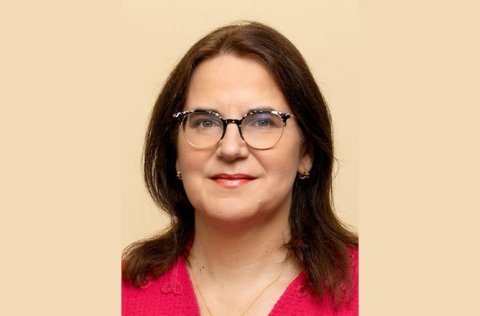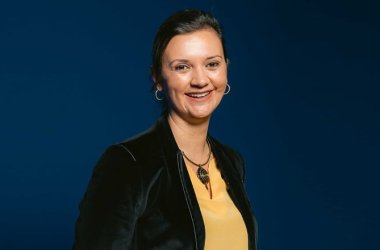
So, it’s quite logical that our companies, which have already successfully provided numerous services here, will continue on a larger scale. Estonia is the world’s leading digital country—100% of government services in Estonia are digitalized, and now we are incorporating more and more artificial intelligence to provide even smoother, more personalized, and proactive services.
We have extensive experience in how digital governance truly works, how to build an efficient government, how to develop services that gain public trust, and how to use data for governance and economic management.
Additionally, cybersecurity in these fields is not something that a country can manage alone—you need partnerships. The partnership with the Kingdom of Saudi Arabia is very important for Estonian companies.
Last year, we established a business council—a central organizing body co-chaired by both countries. The purpose of the business council is to bring more and more companies from both sides together, allowing them to identify mutual interests. Whether it’s one selling and the other buying, or both collaborating, we have already signed contracts between companies during this visit.
Again, there are different ways to cooperate, but of course, collaboration only happens when both sides can generate profit. That’s the essence. However, it’s not just about profit—it’s also about innovation. Estonia brings extensive experience, and both Estonia and Saudi Arabia share high ambitions for digital transformation.
When we combine these ambitious visions, and with the Estonian government supporting innovation among our companies, I have seen many fantastic Saudi ministers who are very eager to support development and innovation projects. This collaboration is not just a case of “one plus one equals two”—it’s something far greater.
One of the key topics under discussion here is how to facilitate mutual investments and protect them. At the same time, Estonia has a unique e-Residency program. It does not mean that you can travel or live in Estonia with these documents, but it provides a way to be part of Estonia’s digital ecosystem.
Through e-Residency, you can establish a company in Estonia, meaning you can start a business in the European Union without ever physically visiting Estonia. This program has proven very successful. It brings companies and investments into Estonia, allowing entrepreneurs worldwide to manage their businesses remotely.
I have met entrepreneurs in Canada, for example, who have never visited Europe or Estonia but have successfully run their businesses thanks to e-Residency and the access it provides to Estonia’s digital services.
Starting a company in Estonia is very easy. We are one of the least bureaucratic countries in the world, and we continue working to reduce bureaucracy even further. The process is quick and smooth, providing full legal access to bank accounts and everything else needed to start a business.
Of course, there are security controls in place to maintain a trusted environment. But despite these measures, e-Residency has been a major success story.
Q3. The sheer scale and breadth of transformation underway across the KSA is unprecedented globally. How exciting are you about the opportunities that exist for Estonia in the KSA marketplace, and how can these collaborations ultimately benefit your own country?
Estonia began its digital transformation after regaining independence from Russian occupation. We took an entirely different approach—we digitalized all our services to ensure transparency and eliminate corruption, providing world-class services to our citizens.
However, we started this journey in the 1990s, and technological advancements have accelerated significantly since then. When you start digital transformation later, you often have the advantage of adopting the latest technology from the outset. That’s why we can learn from each other.
Our solutions have been tested and trusted, and we continue to develop new solutions based on our existing infrastructure. We have extensive experience, and our companies have significant expertise.
Meanwhile, Saudi Arabia is approaching digital transformation with fresh ambition, launching new developments and starting many initiatives from scratch. This presents new opportunities for innovation—opportunities that may not be as readily available in Estonia.
By combining our strengths—Estonia’s ongoing innovation and Saudi Arabia’s ambitious plans supported by strong government backing—we can achieve great things together.
As aforementioned above, the scale of transformation, not only in the KSA but all over the Middle East, is off the scale. What can Europe learn from the Middle East?
So many people have told me that Saudi Arabia truly believes in what it is doing—and does so with immense enthusiasm. The energy I witnessed at LEAP was incredible.
Coming from a Nordic country, we are sometimes quite humble when talking about ourselves. But I believe this is an important lesson we can learn from your side—to have confidence in what we are doing and to take pride in our achievements.
The energy at LEAP has been truly inspiring. Since Estonia also organizes digital events, I took many notes on how we can improve by learning from your LEAP experience.
Above all, I would highlight the enthusiasm and belief in innovation that is so strong here in Saudi Arabia. It’s something that stands out and is worth learning from.





